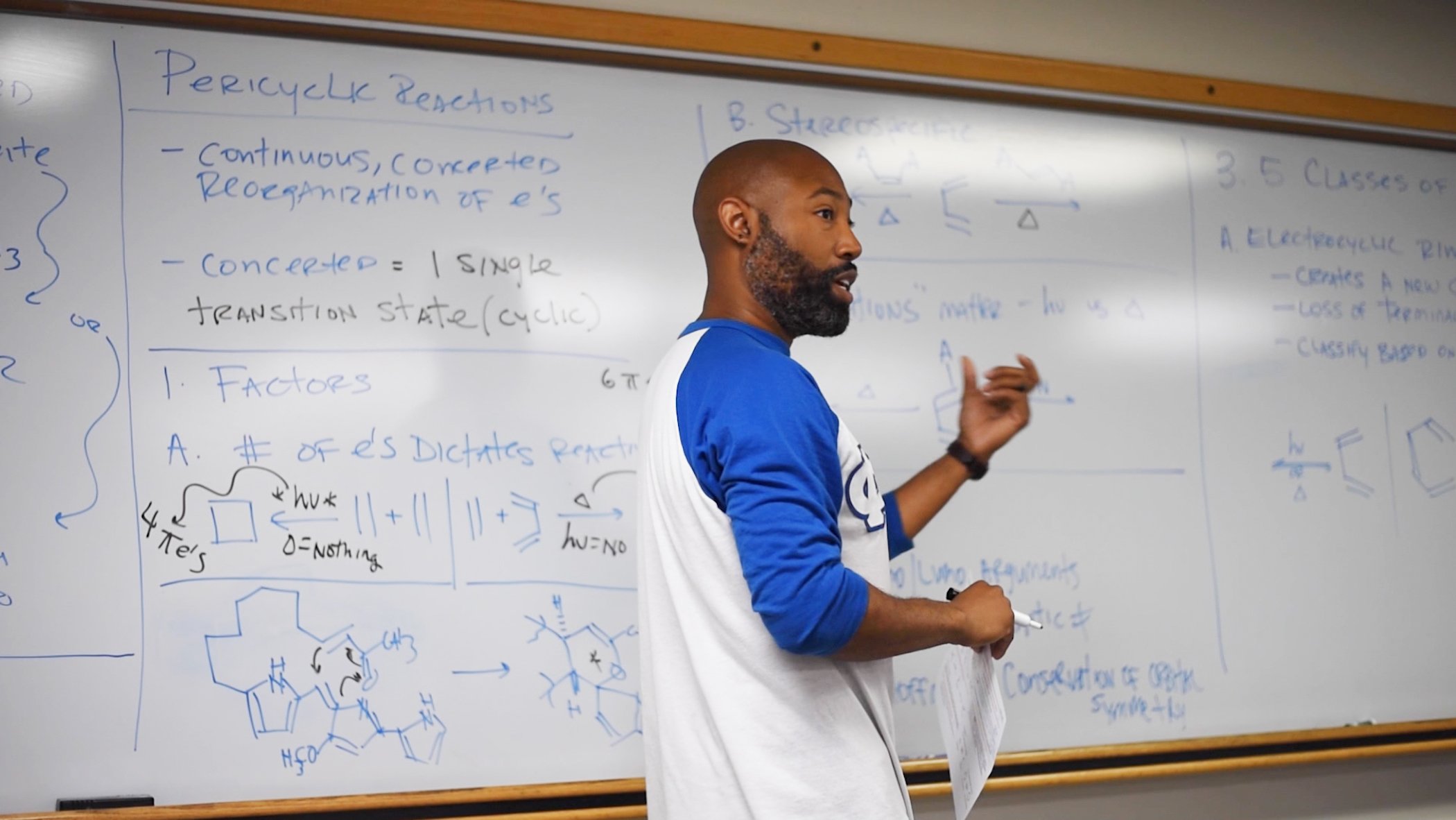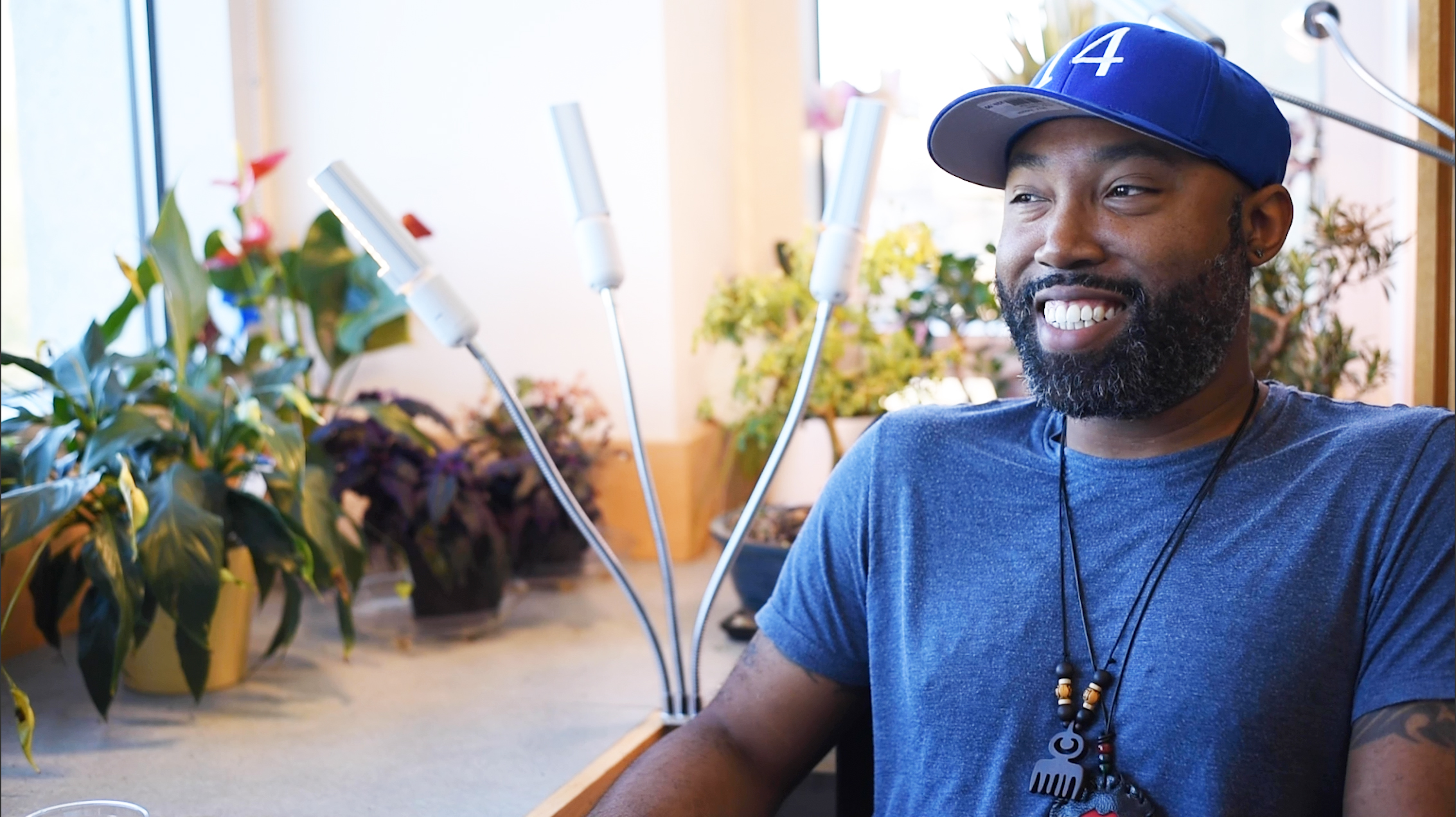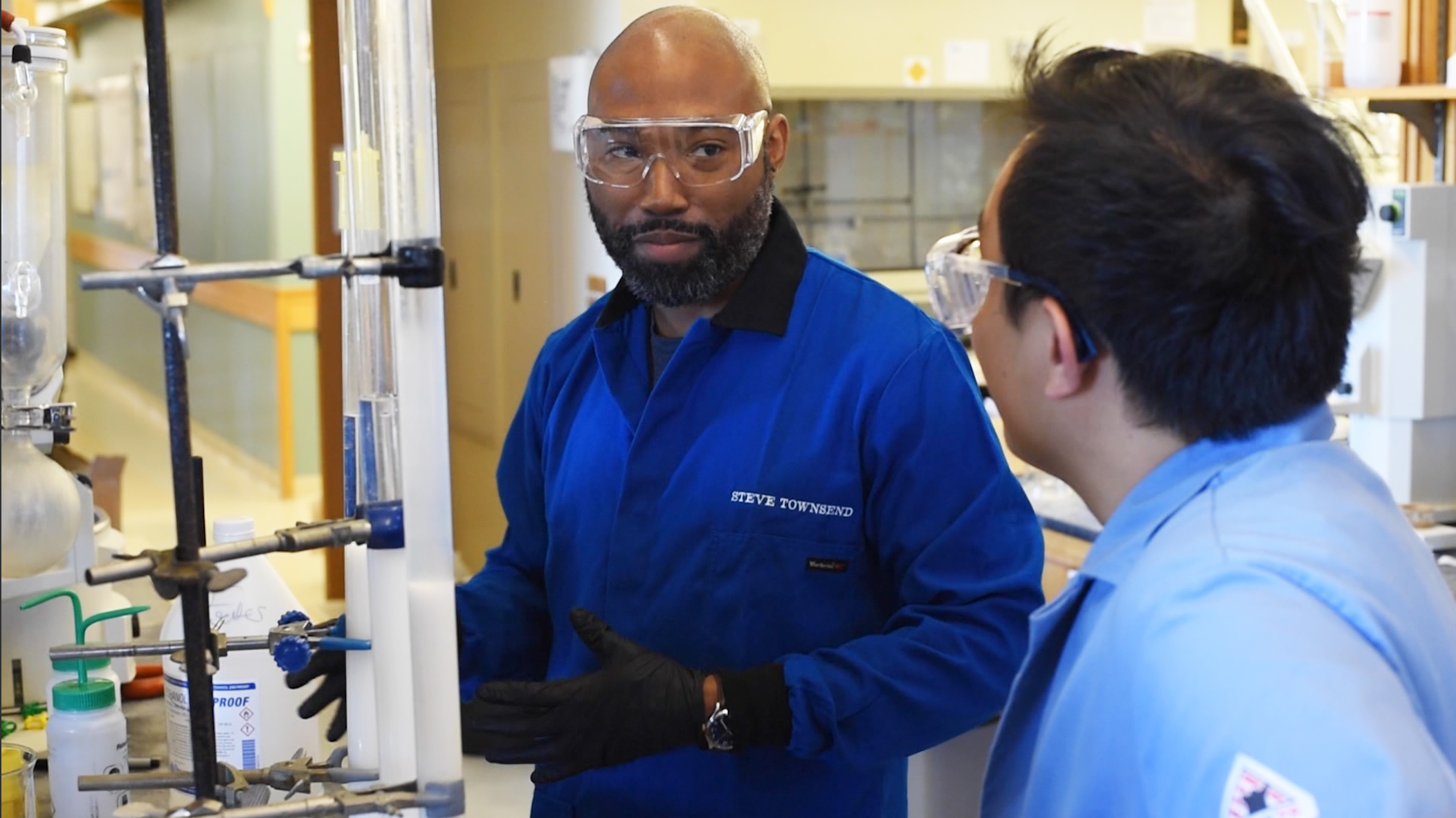Professor, Chemist, Mentor: Steve Townsend, Assistant Professor of Chemistry
Steve Townsend’s office has a lot of the hallmarks you would expect to find in a chemistry professor’s office: models of chemical bonds sitting on the desk, academic and industry awards lining the bookshelf, and published papers pinned to the corkboard outside. But these ordinary items also hint at Townsend’s professional success. This year alone, Townsend has earned an $800,000 National Science Foundation CAREER award for his research on human milk, a $1.5 million grant from the National Institutes of Health to discover new antibiotics, and a place on the Chemical and Engineering News 2019 “Talented 12” list of scientists.
But his work on human milk isn’t purely scientific; there’s also a personal element. When Townsend’s daughter had to be given formula as a newborn in the intensive care unit and rejected the bottle from a nurse, he saw the remarkable preference and value of breast milk, and sought to understand it more deeply.

Townsend’s research on the molecular intricacies of human milk oligosaccharides (HMOs) and how they maintain the balance of good and bad bacteria in infants’ gut flora is a key area of study in the field of human milk science—a field that has made huge advances in the past decade. These HMOs play an important role in infant health, and Townsend’s lab is playing an important role in understanding these complex carbohydrates.
But much like his scientific work, Townsend’s academic work at Vanderbilt has a personal side. In addition to the usual scientific paraphernalia, he has decorated his office with drawings from his daughters and an entire wall of coffee mugs that document his travels. A corner windowsill is bursting with flowers and foliage. These personal elements give you a glimpse into who Townsend really is. He’s dedicated, he’s sentimental, and most importantly, he’s caring.
His office is a space of comfort. It’s homey, maybe even a little messy, and approachable—which is what Townsend wants. His office doesn’t just function as his official space as a professor; it’s also an unofficial hub for his students. It’s where they come to ask questions about their work, but it’s also where they come to unload their struggles with life outside of the classroom and the lab.
“I always had people looking out for me [as a student], because I didn’t know better. I didn’t know what I needed to know,” Townsend said. “But there were people who filled that gap for me and on this campus that’s one of the roles I try to fill.”

Townsend’s role as an official (and unofficial) adviser to his students is an additional responsibility that he cherishes. If his door is open, students often pop in, ask a question, and then pull up a seat and settle in for a talk. Mentorship seems to come easily to Townsend, but it is the result of his long journey from first-generation college student to faculty. It’s a journey he shares openly with his students. Most of them know that he was a first-generation college student, comes from a working-class Detroit background, has incarcerated family members, and had very little formal scientific training before entering college.
“I don’t feel shame for any of that. I think it’s all just education—and it gives me a lot of commonality with a lot of students on campus,” Townsend said. “The fact that I’m willing to listen and understand people’s stories and help them navigate that part of their life with the professional side, is something that I’ve wanted to do since I was an undergrad.”
Nowhere is his passion for mentoring more obvious than in Townsend’s work with Kelly Craft, a Ph.D. student who has co-authored two papers with him. She has published 10 papers overall, she was the primary student working with Townsend on the HMO study that garnered him this year’s NSF award, and she currently works as a post-doctoral researcher at Harvard University.
“In addition to learning so much from him, I also enjoyed how much Steve made everything feel like a collaboration between himself and his students,” Craft said. “It never felt like a boss giving you orders. It felt like you and he were a team, whether you were a first-year or a fifth-year.”

Townsend and his team of researchers have made promising progress in understanding how HMOs work and the important roles they can play in infant development and health. Ultimately, one of the goals of Townsend’s research is to investigate how human milk contributes to and communicates with bacteria found in the gut. For infants, this is particularly vital research. “We are the only team that merges chemical synthesis with microbiology in our field,” Townsend said. “Thus, the support from the NSF will assist in our team not only identifying novel targets, but also making the first human milk oligosaccharide-based tools that can be used to study biological processes in and on human and bacterial cells.”
The next step in the research will be trying to tackle even more complex relationships between HMOs and new molecular targets like proteins or other carbohydrates to gain a deeper understanding of HMOs.
And while all of this innovative research goes on in the lab, Townsend will continue to mentor the young researchers who come through his lab and help them grow as chemists and as people. The hope being, he said, that they’ll do the same when they’re in his position.
